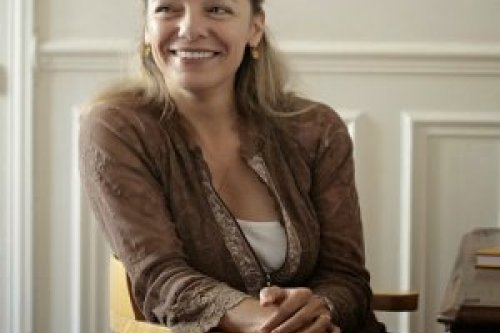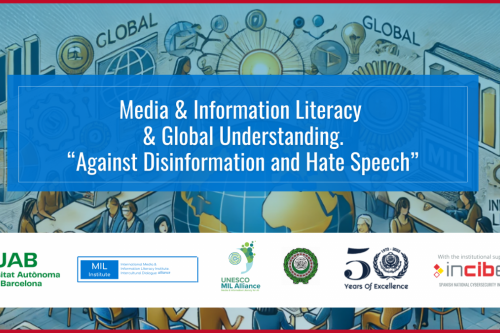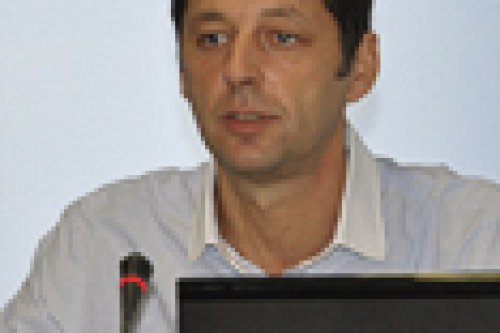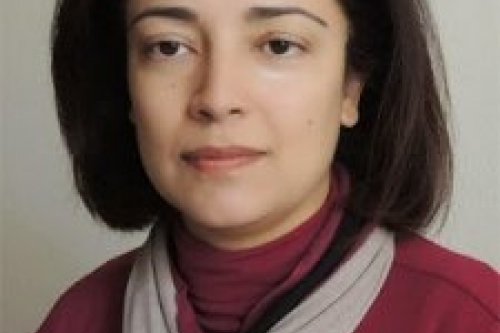


Languages
- Español
- English
Alton Grizzle on the Paris Forum: "We need media and information literacy for all"
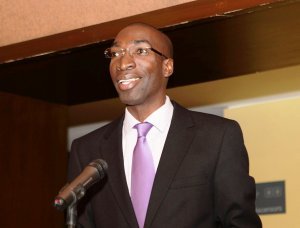
Alton Grizzle, Programme Specialist in Communication and Information at UNESCO and speaker at the European Media and Information Literacy Forum, has said that "we need media and information literacy for all".
Grizzle explained that although the media and information literacy (MIL) has received more attention in countries with high density of media and the Internet, "In a global village, connected digitally (...) MIL is equally important in countries without these characteristics.
UNESCO has developed an important work in the development of media and information literacy; a concept that unifies the development of skills related to the information and the uses of media.
In this interview by the Department of Communication and Education, Alton Grizzle presents his main concerns regarding the development of MIL, and his expectations on the Paris Forum, which will take place next May.
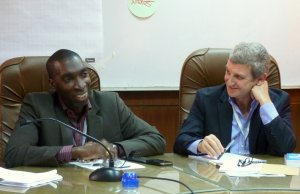
AG: Let me first say that UNESCO is delighted to be cooperating with the European Commission, the Autonomous University of Barcelona and others to organize this gathering. UNESCO prefers to call it the European Media and Information Literacy (MIL) Forum. As you know UNESCO promotes information literacy (IL) and media literacy (ML) as media and information literacy (MIL) - a composite concept. This is necessary for greater impact on development.
That the event is being organized under the umbrella of the Global Alliance on Partnerships for MIL (GAPMIL) is an encouraging sign of the potential for international partnerships on MIL.
From a UNESCO standpoint, and I am sure this holds for all stakeholders of this event, we hope the meeting will give momentum to the development of national MIL policies. With conservative estimate of over 70 countries that are implementing MIL-related activities of different scope and impact, only a handful have national MIL-related policies and comprehensive strategies to implement them.
There is an urgent need to change this slow trend especially in the year before global deliberations on the Post-2015 Development Agenda. The centrality of information, media and ICTs to development is without question, and therefore the need to ensure that all citizens acquire MIL competencies has become an imperative. To assist governments, recently UNESCO published a model, MIL Policy and Strategy Guidelines. I invite your readers/listeners to visit our website via the link provided.
We hope this Forum shed more light on the how, why, what and when of MIL policies and strategies.
In the area of research, UNESCO commends the work of undertaken through the European Media Education Research Project (EMEDUS) and we are pleased to have served as a part of the expert group set-up for EMEDUS. No doubt, the recommendations will be far reaching. The challenge then is to turn these recommendations into real actions in Europe and globally. Speaking about globally, there is a dearth of research on citizens' response to MIL competencies in most regions of the world. UNESCO is hopeful that through this Forum the international steering committee for the Global Alliance on Partnerships for MIL (GAPMIL) will initiate discussions about a research agenda for GAPMIL. More research is needed in other parts of the world.
GCE: What are the main challenges that Media and Information literacy is facing at an international level?
AG: The first problem is fragmentation. I think I have touched on this a bit when I mentioned that IL and ML, with digital skills as cross-cutting, should be treated as a composite concept for greater impact on societies. This is the thrust of UNESCO through our comprehensive MIL programme which is implemented by way of excellent cooperation with many partners globally - some of whom will be present during the Forum. I invite your readers/listeners to visit our website via this link, UNESCO and Media and Information Literacy.
I also mentioned the need for more evidence through research. There are many other challenges that are indeed surmountable. Let me suggest a few others:
- Often the importance of MIL is recognized by countries but then there is an assumption that it is covered under other disciplines. While this is not completely invalid such treatment of MIL is far from sufficient for any meaningful impact.
- There is the constant debate about whether MIL should be centered on the protection of citizens or on means to empower them to be critical and to take their own informed decision. From UNESCO's vantage point, a protectionist approach only will not bear the desired effect and this should be combined with greater focus on empowerment of all citizens to be critical and ethical users of communication and information's spaces or platforms.
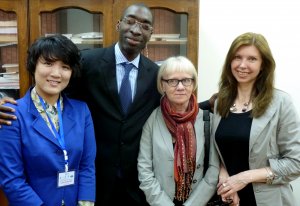 An ultimate goal is for MIL to be a part of formal education at all levels. This is a slow process. Yet we must continue the journey. One way to accelerate the process is through online training. UNESCO and partners have recognized this and have launched two international online courses over the last year. These are also available on the website mentioned earlier. MIL Massive Open Online Courses (MOOCs) are a viable but certainly not the only the only avenue. UNESCO and the Autonomous University of Barcelona will be developing an MIL MOOC soon. Of course MIL MOOCs are not a substitute for the integration of MIL in all levels of education, both are needed.
An ultimate goal is for MIL to be a part of formal education at all levels. This is a slow process. Yet we must continue the journey. One way to accelerate the process is through online training. UNESCO and partners have recognized this and have launched two international online courses over the last year. These are also available on the website mentioned earlier. MIL Massive Open Online Courses (MOOCs) are a viable but certainly not the only the only avenue. UNESCO and the Autonomous University of Barcelona will be developing an MIL MOOC soon. Of course MIL MOOCs are not a substitute for the integration of MIL in all levels of education, both are needed.
Other challenges related to an understanding of the relationship between MIL and development, lack of unity among stakeholders, absence of expertise and experience in some countries, sometimes too much focus on theoretical debates rather that more pragmatism, and lack of adequate resource allocation. I could go on.
GCE: We are expecting 300 participants in the Forum, most of them stakeholders in this field, not only from Europe but also from other continents, mainly Africa and America. There are also participants from ministries, industry, social organizations, film, libraries, universities, regulatory authorities, etc...: What should we expect from this opportunity for dialogue?
 AG: I think Europe has a lot to share with the world in terms of progress achieved in the area of MIL. Equally, Europe can learn a lot from what is happening in the rest of the world on this topic. The Forum is a rich opportunity for the exchange of knowledge. Africa is one of UNESCO's global priorities and is perhaps farther behind in implementing national MIL programmes. It is an opportunity that countries from the continent will be represented.
AG: I think Europe has a lot to share with the world in terms of progress achieved in the area of MIL. Equally, Europe can learn a lot from what is happening in the rest of the world on this topic. The Forum is a rich opportunity for the exchange of knowledge. Africa is one of UNESCO's global priorities and is perhaps farther behind in implementing national MIL programmes. It is an opportunity that countries from the continent will be represented.
GCE: Does UNESCO have any specific project or proposal for this forum?

